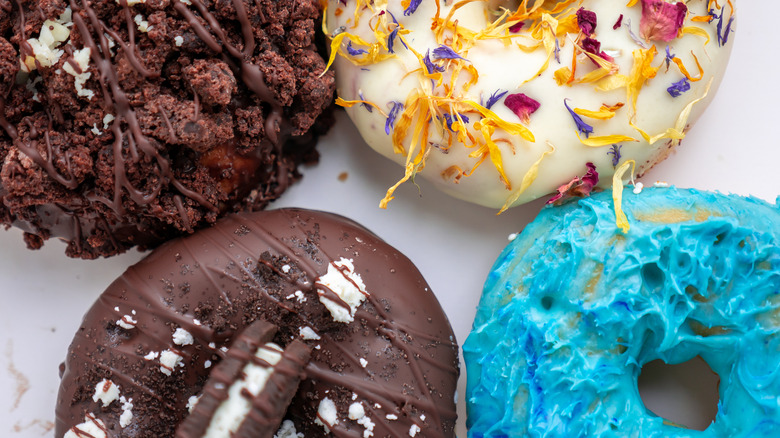What Is Intuitive Eating And Does It Help You Lose Weight?
Intuitive eating has been around since the 1990s, when it was created by dietitians Evelyn Tribole and Elyse Resch, but it's recently experienced a surge in popularity. Here's what you need to know about intuitive eating, and how you can use it to find a healthy balance of eating to fuel your life while getting to your goal weight — and staying there.
The first thing that the intuitive eating creators urge people to do is "reject the diet mentality." In Tribole and Resch's 10 Principles, that's number one: Coming to the understanding that fad diets don't work. Instead, it's important to understand your own body and its needs, which leads to principle two, honoring your hunger — when we try to ignore hunger pangs and cravings, more often than not, we end up overeating as a result. But understanding when we are hungry, and allowing ourselves to eat when we are hungry, can be a game-changer (via Intuitive Eating).
"Most people have never asked themselves the question, 'What do I like to eat? What feels good in my body?'" Tribole told Health. If you've been doing different fad diets for years now, you may have forgotten what you actually like to eat or what makes you honestly feel good and energized.
How can intuitive eating help you lose weight?
Intuitive eating isn't all about eating high-carb, high-fat treats, though. "A wonderful thing ends up happening when you give yourself permission to, say, eat chocolate doughnuts for breakfast. You stop and ask yourself, 'Do I really want this now?' Not just, 'Will I enjoy it in the moment,' but also 'Will I feel good when I'm finished?'" Tribole told Health.
In fact, Ellen Frankel, a specialist in prevention and treatment of eating disorders, told The Harvard Gazette that intuitive eating also means thinking ahead and planning healthy meals and snacks, in addition to finding enjoyment and satisfaction in the occasional favorite indulgence. It also means pausing and asking why you're hungry and what you really need, she says. She gives the example of a student feeling the urge to have a late-night snack. "What you're hungry for is sleep, and food is not going to help that," she explains.
Simply focusing on what you're doing while you eat can also make intuitive eating easier, since it tunes you in to your feelings rather than blocking them out with television or scrolling social media. "We want to be mindful when we're eating. So being aware of what we're eating and how much we are eating," Elizabeth J. Bailey, a registered dietitian, explained to the Mayo Clinic.


